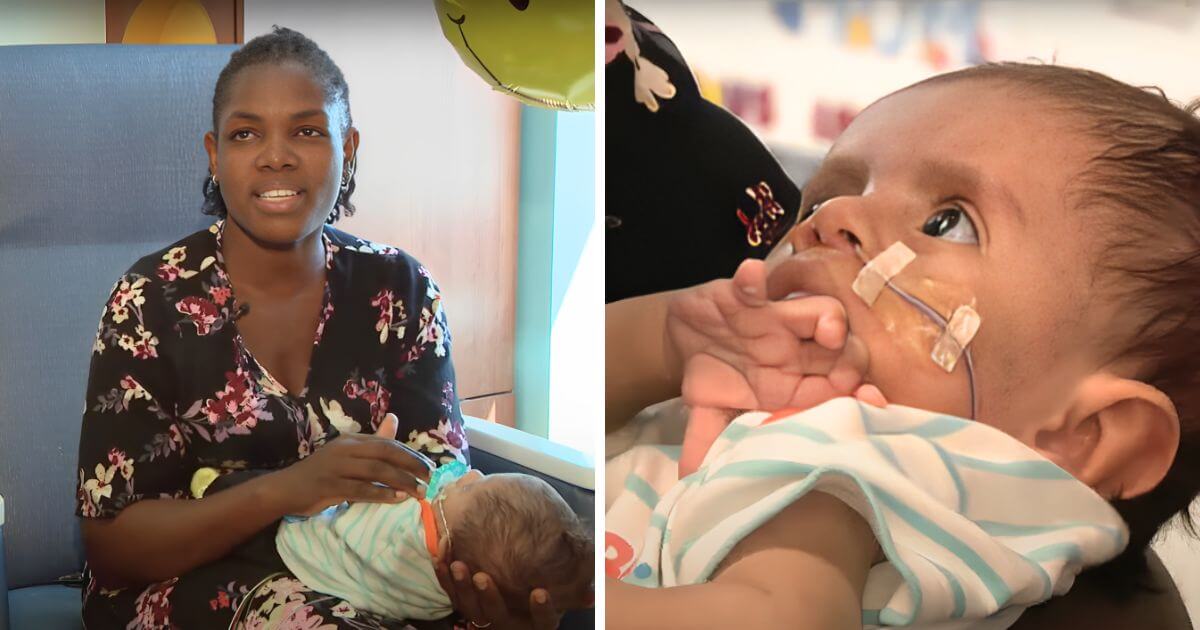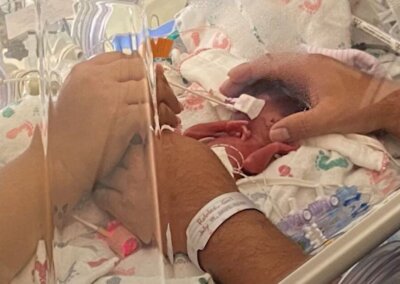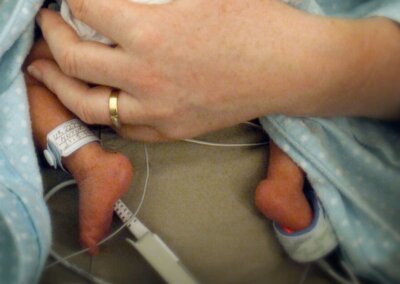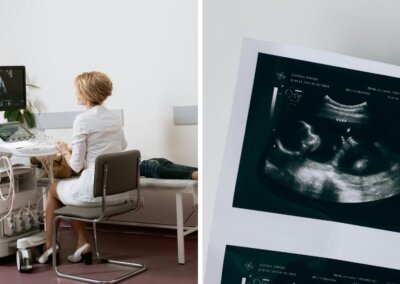A baby boy who was flown from Uganda for medical treatment has been reunited with his mother after two months of separation.
Caius was born in Uganda with serious health difficulties, including the absence of an organ called the thymus, which has meant his immune system is severely compromised. He has also been diagnosed with CHARGE syndrome, a rare genetic condition which affects multiple areas across the body.
Doctors in Uganda said that they were unable to help him, but his paternal grandparents, Diane and Steve Haskin, were able to get approval to bring Caius to Chicago for treatment.
“He’s had a journey here. It’s the scariest thing we’ve ever, ever done in our lives”, Diane said.
Caius’ mother unable to be with him during medical treatment
Caius’s mother, Brenda Nakiyonga, was unable to go with Caius when he initially went to Chicago.
“I think I grew numb”, she said. “I didn’t really have a recollection of what was going on”.
When Caius and his grandparents arrived in Chicago, the hospital medical team were waiting for him. He underwent open heart surgery shortly after his arrival.
Two months later, after contacting the embassy in Uganda and lawmakers in the USA, Brenda was granted a visa to go to Chicago to visit her son. When she arrived at the hospital, the medical team at the hospital were there to welcome her and cheer on her reunion with Caius.
“I’m just glad that I’m here with him and I get to hold him”, Brenda said. “Simply unexplainable, it’s been magical”.
“It’s so special getting to see him grow up and finally get to be with his mum…could not take his eyes off her. It was so special”, said Sydni McStravick, one of Caius’ nurses.
Dr Ashley Ikwuagwu, Caius’ doctor, also said “It’s been really nice to be able to celebrate them today”.
Caius’s mother expressed her gratitude for the support everyone had shown her, especially that of her in-laws. “In different circumstances, I would have them adopt me, but now that I am a daughter-in-law, I couldn’t ask for more”, she said.
Many children with disabilities are aborted in the womb
Children like Caius with disabilities are often aborted before birth if their disabilities are detected when they are still in the womb. In the UK, abortion is available de facto on demand up to 24 weeks gestation, but in cases of a disability-selective abortion, where a child is prenatally diagnosed with a disability, abortion is available up until birth.
Section 1(1)(d) of the Abortion Act 1967 is unique among the current grounds for termination in that it does not require that there be any risk of injury to the mother or any existing children in her family. Instead, the focus is solely on the ‘risk’ of the baby having a disability.
In 2021, there were 3,370 disability-selective abortions under Ground E in England and Wales.
There have been at least 3,000 abortions in England and Wales due to disability every year since 2014. A 2014 Department of Health review found evidence that there is significant under-reporting of the number of abortions for some fetal disabilities. These numbers are therefore likely to be significantly higher.
Spokesperson for Right To Life UK, Catherine Robinson, said “How wonderful to see a mother and child reunited after months spent apart! Brenda’s willingness to let Caius go away to Chicago for treatment showcases her sacrifice and bravery, which so many mothers must endure for the sake of their children. Hopefully, stories such as these will give courage to other parents who face difficult circumstances to choose what is best for their children”.












